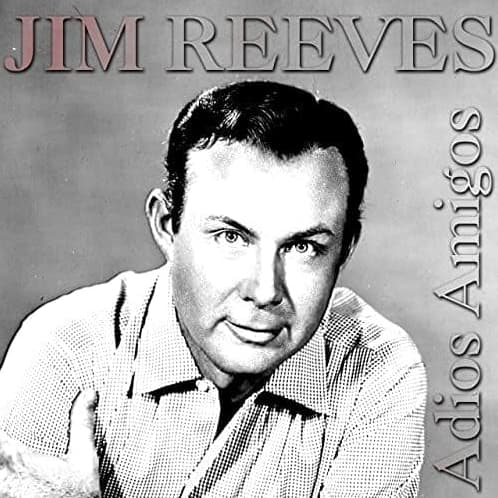
Farewell with Fondness: The Timeless Appeal of Jim Reeves’ “Adios Amigo”
In the annals of country music history, few voices have left as indelible a mark as that of Jim Reeves. His smooth, velvety baritone has a way of wrapping itself around the listener, offering comfort and solace even in the face of heartache. “Adios Amigo”, released in 1962, is a prime example of this emotional resonance. Written by Ralph Freed and Jerry Livingston, the song stands as a poignant farewell that captures the essence of parting with a blend of sadness and hope.
When “Adios Amigo” debuted on the Billboard country and western charts in May 1962, it quickly resonated with audiences, holding steady at the No. 2 spot for an impressive nine weeks. This achievement is a testament to the song’s emotional depth and the way it connected with the listeners of its time. Despite never reaching the coveted No. 1 position, its prolonged stay on the charts for a total of 21 weeks speaks volumes about its enduring popularity. The song’s appeal wasn’t limited to the United States, either; it also made a notable impact in Canada, reaching No. 15 on the CHUM Charts.
The song’s success is no surprise, given the timeless theme it explores. “Adios Amigo” tells the story of a parting between friends, a theme that resonates universally. The lyrics, simple yet profound, speak of a goodbye that is both inevitable and heartfelt. It’s a farewell that is given with respect and affection, making it clear that while the paths of the friends may diverge, the bond they share will always remain.
Jim Reeves‘s delivery of the song is nothing short of masterful. His voice carries a warmth and sincerity that makes the listener feel as if he is speaking directly to them. This personal connection is a hallmark of Reeves’ style, and it’s what has made songs like “Adios Amigo” endure through the decades. Even now, more than 60 years after its release, the song still holds a special place in the hearts of country music fans, particularly those who have experienced the bittersweet emotions that come with saying goodbye to a dear friend.
The production of “Adios Amigo” is also worth noting. The arrangement is simple, allowing Reeves‘s voice to take center stage. The backing instrumentation, with its gentle strumming and subtle orchestration, provides the perfect backdrop, enhancing the emotional weight of the lyrics without overshadowing them. This balance is key to the song’s effectiveness, making it a perfect example of how less can sometimes be more in music.
By the end of 1962, “Adios Amigo” had secured its place not only as a chart success but also as a cultural touchstone, ranking No. 5 on Billboard’s year-end country and western chart. This recognition is a fitting tribute to a song that has helped define the genre and continues to evoke the same emotions today as it did when it first graced the airwaves.
In conclusion, “Adios Amigo” is more than just a song; it’s a timeless farewell that captures the essence of human connection and the inevitable partings that come with life. Jim Reeves‘s rendition of the song ensures that it will continue to resonate with listeners for generations to come, reminding us all that goodbyes, though painful, are a natural and necessary part of our journey.